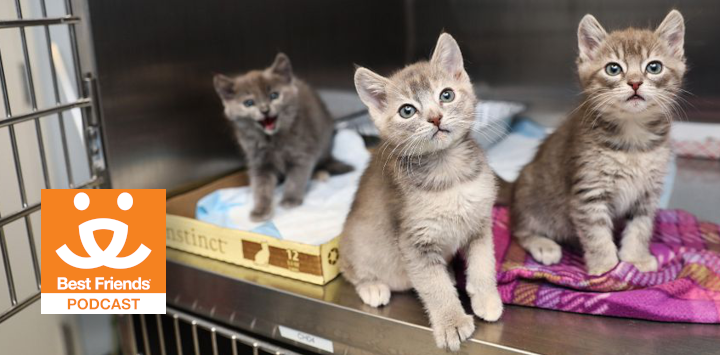
The Best Friends Podcast Episode 92
As the world attempts to return to some sense of normalcy, we're still feeling the impacts of the global pandemic across animal welfare. While there have been positives for the industry, the disruption of our daily lives over the last two years is showing its impact on lifesaving, and it's not all good news.
One particular data point trending in the wrong direction is length of stay (LOS). This measurement is the amount of time an animal is in the shelter and can be a valuable tool to evaluate the efficacy of the lifesaving programs. If there are programs in place, and they are working, LOS will be shorter. Conversely, LOS will increase if fewer animals leave the shelter to positive outcomes through avenues such as adoption.
This week we chat with the senior director of national programs for Best Friends, Brent Toellner, about this concerning upward trend in LOS across the country and what shelters and rescue organizations can do to keep animals moving through to positive outcomes.
Click here to check out all the episodes from the podcast.
 Resources from this episode
Resources from this episode- Best Friends network:Length of stay manual
- Best Friends network town hall: Reducing Length of Stay at Your Shelter
- Maddie’s Fund Flow-Through Planning
- UC Davis Koret Shelter Medicine Program Daily Shelter Rounds
- Best Friends: Removing Rescue Roadblocks
- Best Friends network editorial: Help! We Just Can’t Keep Up!

Brent Toellner
senior director of national programs, Best Friends Animal Society
Brent Toellner joined Best Friends in November of 2016. As the Senior Director of National Programs, he oversees Best Friends’ regional work and helps the organization prioritize national initiatives in working with local partners to facilitate lifesaving programs that have maximum impact toward achieving no-kill nationwide by 2025.
In 2011, Brent, his wife, Michelle, and a few others co-founded the Kansas City Pet Project (KCPP) to bid on the contract to run the municipal shelter in Kansas City, Missouri. Since KCPP took over in January 2012, adoptions have increased by more than 200 percent. KCPP has had a live release rate of more than 90 percent for five consecutive years while remaining an open-admissions shelter.
 Episode Transcript
Episode Transcript



